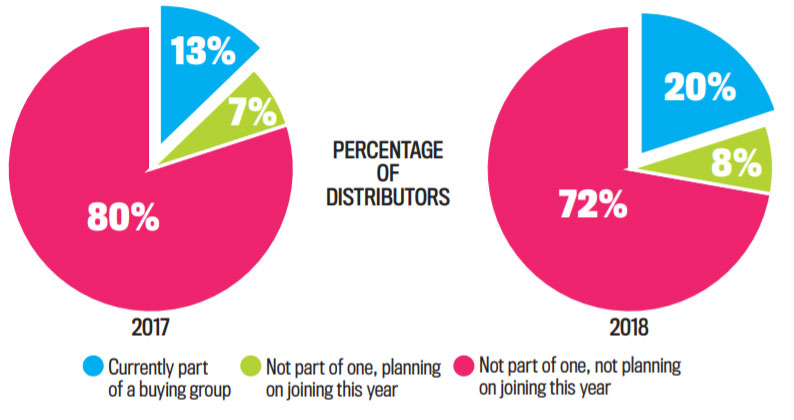July 10, 2019
SOI 2019: Debate: Buying Groups
Are they good for promo?
Paul Dubois, Safety Made (asi/84514)

NO
More SOI 2019: Back to Main Page
When it comes to buying groups, I feel there are pros and cons, but my instinct is that they’re evolving into a negative for the end-buyer and the industry overall. The promotional products marketplace is unique in that the items offered come from a diverse supply chain made up of suppliers large and small. Those suppliers work on an anonymous basis to protect the distributor partners. It’s not like retail, where brands are built over time and consumers select products based on the brands they trust. In the promotional world, the end-buyer, in most cases, sees only the product, not the supplier’s brand.
“Larger suppliers can easily float the fees and corner the market.”
Buying groups create a reason for distributors to work with participating suppliers for financial incentive, not necessarily quality or service. Along with this, buying groups are choosing their supplier participants not based on the best product or best service, but on compensation. It involves a pay-to-play structure where the larger suppliers can easily float the fees and corner the market while the smaller suppliers, sometimes with the better or more unique products, are excluded.
As a smaller supplier, I’m seeing the shift with buying groups toward exclusivity. I feel distributors are being led away from choice and toward a buying group’s internal direction. This leads to a less competitive market where quality and service take a back seat and the end-buyer ultimately pays the price. I see the benefits from a smaller distributor’s perspective where there’s strength in numbers, but I don’t believe a less competitive industry carries a long-term benefit for suppliers and distributors alike.
Larry Cohen, Axis Promotions (asi/128263)

YES
There are tremendous benefits for industry firms when coordination goes beyond the traditional vendor/distributor relationship. The strength is the stronger partnership that can be developed. And by the way, I hate the term “buying group,” as it focuses on only one aspect of the true value.
To me, this is about more than just buying things cheaper. I’m a strong believer that these partnerships are a two-way street. If we’re going to ask suppliers for assistance, we need to support them in growing their business. This includes enhanced access to our sales teams, coordinated marketing initiatives and access to CEOs of the companies.
As a member of PeerNet, we have a full-time CEO who works with suppliers to help them communicate with the sales teams. Among the added value: a fully custom catalog that includes only products from our supplier partners, an enhanced online shopping site and off-site educational opportunities where suppliers can meet one-on-one with our teams.
“I’m a strong believer that these partnerships are a two-way street.”
In my opinion, the most valuable aspect of being a member of a group like PeerNet is the ability to learn from each other through meetings, monthly calls about best practices and joint marketing initiatives. The PeerNet group has developed educational tools that are focused on teaching each person what they need to know about compliance and regulatory issues. No one company would’ve been able to fund this tool, but combined resources make it possible.
Through the years, we’ve built a high level of trust. When something goes wrong, this trust lets firms fix issues faster and more efficiently. The overall goal for all members is to have a better experience at every point in the supply chain. Another important benefit: Groups have clout within the industry. We have a stronger voice and are able to have a greater impact.

SOI data shows more distributors are joining buying groups.

